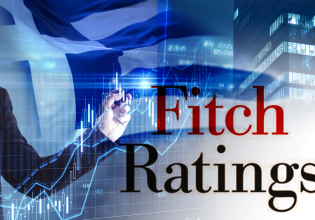Athens University Med School doctors answer questions about post-vax precautions
Theodora Psaltopoulou, Panos Malandrakis, Ioannis Ntanasis-Stathopoulos, and Thanos Dimopoulos (Rector, University of Athens) – answer the most common questions that have arisen in the US, where about 40 percent of adults have been vaccinated.
Those who have completed their vaccination against COVID-19, whether the two-dose or one version, are less likely to be infected, to come down with a serious case of the virus if they are, and to transmit it to others.
That means that individuals who are vaccinated can gradually resume activities that they were forced to avoid in order to keep themselves and others safe.
Four doctors who are members of the Therapeutics Clinic of the Medical School of the National and Kapodistrian University of Athens (EKPA, photo) – Theodora Psaltopoulou, Panos Malandrakis, Ioannis Ntanasis-Stathopoulos, and Thanos Dimopoulos (Rector, University of Athens) – answer the most common questions that have arisen in the US, where about 40 percent of adults have been vaccinated.
How is full vaccination defined?
Maximum protection from vaccination comes two weeks after the second dose of two-dose vaccines (Pfizer and Moderna) and two week after the single-dose vaccine produced by Johnson & Johnson. This data concerns healthy individuals. Patients with a weakened immune system due to a disease or due to treatment with medicines should first consult their physician.
Should I wear a mask outdoors?
When someone has completed their vaccination experts say that it is safe for them to walk or exercise outdoors, to participate in small gatherings of people who are vaccinated or not vaccinated, and to eat outdoors without a mask. Nonetheless, it would be best for them to continue to wear a mask even after having been completely vaccinated at events with large gatherings of people, such as concerts.
What should one do in outdoors situations?
In outdoors spaces one could potentially not wear a mask at gatherings with completely vaccinated individuals or where those who are not vaccinated are from a single family in small groups of people.
In addition, the use of masks is recommended in the following situations:
• Indoor public spaces such as airports, department stores, hospitals, and supermarkets
• Indoor gatherings with non-vaccinated individuals from different families
• In mass transit situations such as buses, trains, and aeroplanes
Is it safe to travel?
Theoretically, it is safe for fully vaccinated individuals to travel domestically without being tested or quarantined upon their return. Nevertheless, it is important while traveling to take precautionary measures such as social distancing, use of masks, and proper hygiene including the washing of hands.
As regards trips abroad, one must inquire whether a vaccination certificate or quarantine upon one’s return is required. If one is traveling to the US, one must present evidence of a negative test within three days.
What must I do if I come into contact with an individual who is a confirmed COVID-19 case?
Fully vaccinated individuals have much fewer chances of being infected with the virus. However, experts recommend the monitoring of symptoms such as fever, muscle pain, cough, difficulty breathing, fatigue, headaches, loss of taste, throat ache, nasal congestion or drip, nausea, or diarrhoea. Especially if one has come into contact with a confirmed case and lives together with many people, they should be tested and self-isolate for 14 days even if they have no symptoms.
- Champions League: Γκολ made in USA
- Λίβερπουλ – Ρεάλ: Ιστορία γεμάτη γκολ
- Τα βρήκαν μεταξύ τους εκλέξανε και πρόεδρο ας κοιτάξουν όμως και τον λαό πριν χάσουν κάθε περιθώριο
- Βραδιά… εξάρας
- Μπέττυ Μαγγίρα: Επιστρέφει στη σκηνή του MadWalk μετά από 7 χρόνια
- Τέσσερα στον Έμερι και στον Ραζβάν – Πώς θα (του) γλίτωνε ο Αλμέιδα;










